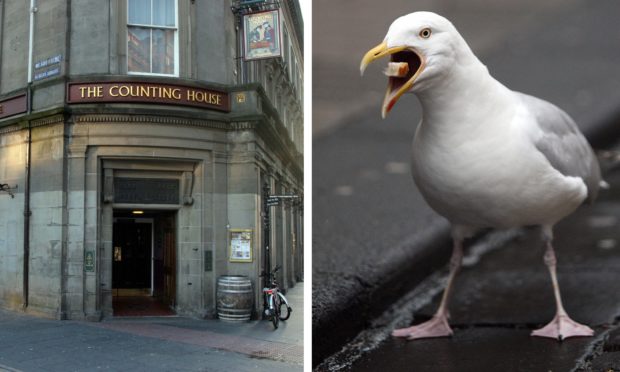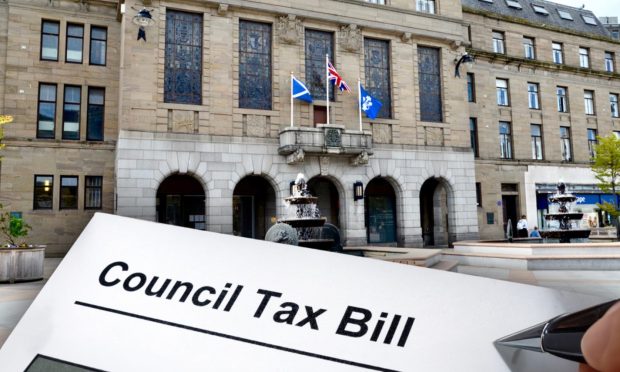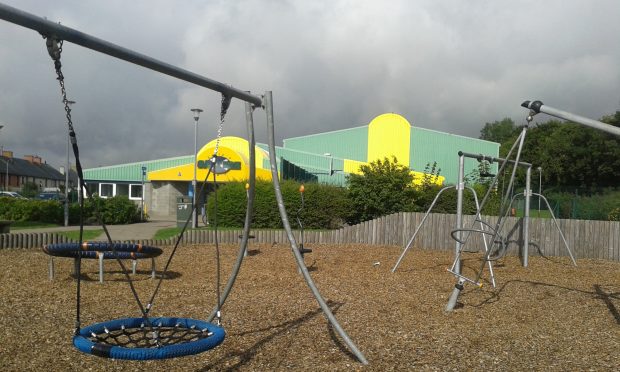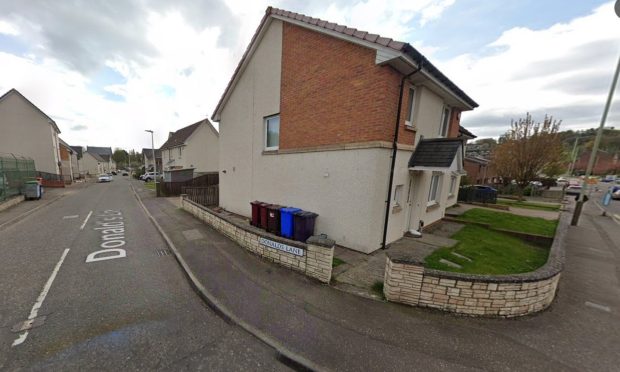Drinkers at one of Dundee city centre’s most popular pubs were unable to wet their beaks after nesting gulls prevented their pints from being pulled.
A fault with the beer cooling system at The Counting House could not be fixed because engineers were unable to disturb nesting gulls on the roof of the building in order to carry out repairs.
It meant the pub, owned by Wetherspoons, could only use one of its three T-bars for pouring beer and cider.
One regular patron of the Reform Street boozer said: “I went to the pub after work on a Friday night, like many people, for a nice pint.
“It was quite a surprise to see such a reduced choice – especially when you consider the size of chain that Wetherspoons is.
“The bar was quite busy, which is surprising considering how poor the selection was. I hope this is not a recurring issue with the place.”
Wetherspoon spokesman Eddie Gershon said normal services has now been resumed after gull chicks left their nests, allowing them to be cleared from the roof.
He said: “One of the cooling units required maintenance, which has resulted in staff being able to serve from one T-bar, rather than the usual three.
“The gulls on the roof of the pub made it impossible for the engineer to service the machine. The baby gulls were of an age to fly the nest so the nests were removed and bird fitting is to be fitted to prevent further nesting.
“The engineer is attending to fix the problem with the cooler and then service at the pub will be back to normal.”
Gulls have long been known for snatching food from the hands of people in the city centre but this is the first time they have interfered with the day-to-day operation of a pub.
A Dundee City Council spokesman said: “We know that gulls can often be a cause for considerable distress and annoyance and we continually pursue tried and tested as well as innovative solutions to the problems that arise from these birds
“Pest control officers are actively involved in removing eggs and nests throughout the breeding season, which is approximately April to July, and while this action greatly reduces the incidences of aggressive behaviour as well as disrupting and reducing the breeding pattern, it can take between five and seven years for the effect to take hold.
“Gulls are protected by the Wildlife and Countryside Act 1981. It allows for the destruction of birds under certain circumstances, but this is only permissible where it can be demonstrated that they pose a risk to public safety or public health, and only when all other non-lethal methods of control have been investigated and discounted.
“We would also ask that people do not feed seagulls as this only exacerbates the problem.”










